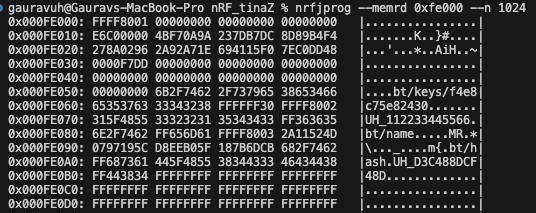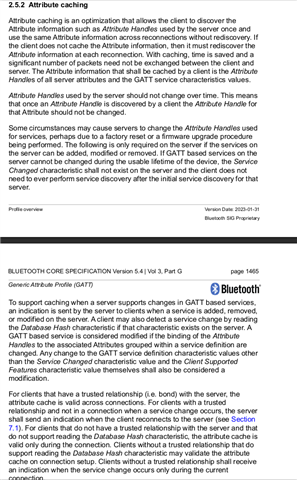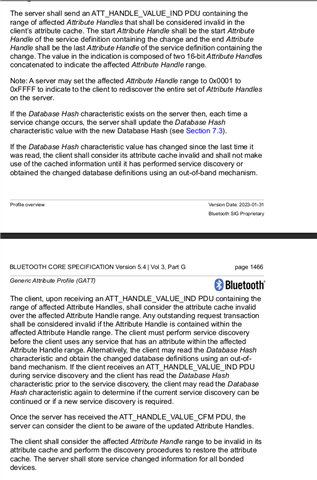I am running an experiment to use a static keys for pairing information without breaking the existing flow of pairing/bonding.
What I am doing is I am storing the pairing info of my central device and storing it into a structure and then erasing the flash to remove those information, and after reset I am retrieving those bonding information and connecting again using the same central devices but I am getting "Peer removed bonding info" response on my phone.
void store_ltk_in_zephyr(void)
{
int id, err;
struct bt_keys pairing_info = {
.addr = {
.type = BT_ADDR_LE_PUBLIC,
.a.val = {0x43,0x82,0x5E,0xC7,0xE8,0xF4,0xFD}
},
.irk = {0x8A, 0x27, 0x1E, 0xA7, 0x92, 0x2A, 0xF0, 0x15, 0x41, 0x69, 0x48, 0xDD, 0xC0, 0x7E, 0xDD, 0xF7},
.ltk = {
.val = {0xc0, 0xe6, 0x9a, 0x0a, 0xf7, 0x4b, 0xdc, 0xb7, 0x7d, 0x23, 0xf4, 0xb4, 0x89, 0x8d, 0x96, 0x02},
.ediv = {0x00,0x00},
.rand = {0x00,0x00,0x00,0x00,0x00,0x00,0x00,0x00},
}
};
// Store the keys using the settings API
err = bt_keys_store(&pairing_info);
if (err) {
printk("Failed to store keys (err %d)\n", err);
} else {
printk("Keys stored successfully\n");
}
}In main, I am calling like this to load the info onto the flash-
settings_subsys_init();
//smp_bt_register();
bt_conn_auth_cb_register(&auth_cb_display);
bt_conn_auth_info_cb_register(&conn_auth_info_callbacks);
err = bt_enable(NULL);
if (err) {
printk("Bluetooth init failed (err %d)\n", err);
k_sleep(K_MSEC(100));
err = bt_enable(NULL); //Trying one more time after this system reset
if(err) NVIC_SystemReset();
}
store_ltk_in_zephyr();
if (IS_ENABLED(CONFIG_SETTINGS)) {
settings_load();
}And on connect I am using like this-
bt_conn_set_security(conn, BT_SECURITY_L1|BT_SECURITY_FORCE_PAIR);
Do let me know, how can I connect with the same bonding info which I have made a copy of from the same bonding structure.





